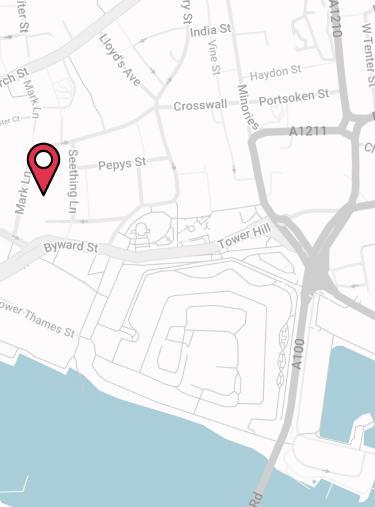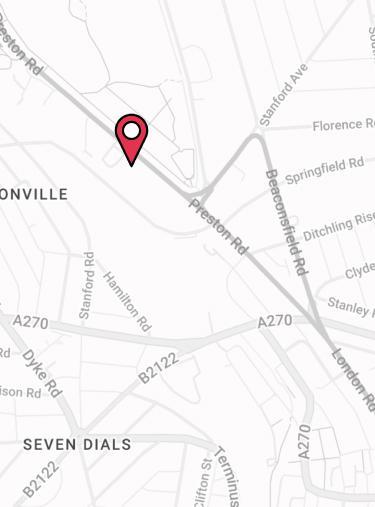
What Does Life Insurance Cover?
The question of what Life Insurance covers is, in many ways, very simple – it covers you if you die with an active policy in place.
Should this happen, it will offer a financial payout to your beneficiaries, or to a trust that you may have set up.
Your beneficiaries are free to use the payout in any way they choose, although typical usage may include:
- Replacing the deceased’s lost income
- Clearing a mortgage and / or other debts
- Paying for the funeral.
As such, Life Insurance can cover different things depending on your needs.
It’s something you need to think carefully about before taking out a policy; having a good idea of what it’s needed for will help you decide what type of policy to take out and how much to insure your life for.
You should be aware that there are some exclusions on Life Insurance, as detailed below, but the first step is to get to grips with the main distinctions in policy types: term insurance and whole of life insurance.
What Does Term Life Insurance Cover?
Term Life Insurance covers you if you die within the set term of a policy.
You choose this term at the outset of the policy. It means that if you have, for instance, a 25 year policy term and die within those 25 years, your Life Insurance covers you. However, you won’t be covered if you live 25 years and one month.
The value of a term assurance policy comes in covering liabilities that you know will last for a set term, such as a mortgage or the education of a child.
Here term life assurance makes sense, because the cover ends after a set term when that liability is also ended.
What Does Whole of Life Insurance Cover?
Whole of Life Insurance is guaranteed to pay out whenever you die, providing you have made all your premium payments and adhered to the policy terms.
This guarantee means that premiums are far higher than with term insurance and the sums assured are typically much lower. According to the ABI, in 2017 the average payout on whole of life insurance was £4,511.
Such sums are not typically enough to cover a mortgage or an education, which is why Whole of Life Insurance is often used for things like paying for a funeral or covering a small debt.
These plans are also used to cover an inheritance tax liability as the payout will be paid on death, whenever that may be, at the same time an inheritance bill would come due.
Your Life Insurance Options
Life Insurance policies can come with a number of optional extras, which may be included in the standard price or offered at an additional premium.
Waiver of Premium
You may be offered ‘waiver of premium’. This option can mean that, if you find yourself in unfortunate circumstances, your Life Insurance policy remains in place without you having to continue to make premium payments.
This may be, for example, if you can’t work because you’ve become seriously ill.
Terminal Illness Cover
Terminal Illness Cover is a standard feature on most policies. This allows for a payout to be made before the policyholder’s death if they’re diagnosed with a terminal condition.
However, a payout on terminal illness cover is commonly excluded if the claim is within 12 months of the end of the policy term.
Including Critical Illness Cover
Critical illness is NOT covered as standard by Life Insurance, but it is often bought alongside it and – if you want both sorts of cover – it makes sense to buy them together. It’s often more cost-efficient to do so.
Critical Illness Insurance provides you with a payout if you were to suffer any one of the critical illnesses listed on the policy.
A typical number of illnesses covered is around 40, but there are policies which cover more than 100 and those which cover fewer than 10, so it’s important to check the policy carefully.
Critical illness cover can be a valuable product, but it means premiums will be far higher because the risk of you becoming critically ill is much greater than the risk of you passing away.

It’s important not to confuse terminal illness cover with Critical Illness Cover. The former is usually included on the policy free of charge whereas the latter will cost extra because of the added risk and protection.
Sam Barr-Worsfold
Independent Protection Specialist at Drewberry
Life Insurance Exclusions
As with all insurance, you’ll find that life insurance may come with certain exclusions.
An exclusion that’s common to most policies is suicide, but the exclusion should only last for a set period of time after taking out the policy – typically 12 months.
Clients ask questions about exclusions relating to a huge number of issues and activities, from whether they are covered when riding a motorbike to whether they can get cover if they have had cancer.
You will find the answers to many such queries in our Life Insurance FAQ pages, but the typical answer would be that ‘normal’ activities are covered while ‘extreme’ activities or events may require specialist advice and underwriting, or may be subject to a specific exclusion or premium raise.
To serve as examples, we will consider four areas: exclusions relating to occupations, hobbies and activities, lifestyle choices and health.
Exclusions Relating to Occupations
Whether you can get Life Insurance as a pilot is a question we have been asked often and we will use this as an example.
If you’re a commercial pilot and only fly for a company such as British Airways, you should have no problem arranging life insurance.
However, an insurer will probably ask other questions relating to your activities as a pilot, such as whether you engage in any private flights, or any other sort of flying.
If, for example, you fly stunt planes or vintage machines, you should still be able to obtain Life Insurance but it will require special underwriting and you will likely need to speak to an adviser for help.
Exclusions Relating to Hobbies and Activities
We have been asked about Life Insurance options for sailors, cyclists, surfers, skiers, motorcyclists and glider pilots to name a few!
However, as just one example we will head underwater with the divers. Most life insurers will cover recreational diving to depths of around 30-40 metres.
If you plan to go deeper, though, there may be exclusions, or you may have to pay more for cover. This is also likely to be the case if you are a dive instructor, or if you engage in activities such as internal wreck diving, competitive diving, free diving, pothole or cave diving.
Exclusions Relating to Lifestyle Choices
Moderate alcohol consumption is not generally a problem if you are looking to take out Life Insurance, but if you drink beyond certain limits it may lead to increased premiums.
We have also been asked if it is possible to take out Life Insurance if you smoke cannabis.
As with all questions in the application process, you need to be honest. If an insurer asks a question about drug use it will be confidential and used to assess your application.
Cannabis use may have very little impact on your ability to take out Life Insurance, but some providers will treat this issue more seriously than others, and a lot may depend on frequency of use and quantity.
Exclusions Relating to Pre-Existing Medical Conditions
Customers ask if they can take out life insurance if they have suffered from major medical issues such as a stroke, heart attack, diabetes and / or cancer, or even from things such as asthma or obesity.
The issue of pre-existing medical conditions is a key one but – whatever the problem – the answer is the same: you’ll need to declare your medical history when you apply for Life Insurance.
Failing to do this accurately could also invalidate any policy you subsequently took out and may mean a claim ins’t paid when your family need it the most.
Based on your medical history, the insurer may do one of three things:
- Offer the policy on its standard terms
- Place an exclusion on the policy relating to the pre-existing condition
- Cover the pre-existing condition but charge a higher premium to reflect the increased risk.
Advice on Life Insurance Coverage
The obvious way to find out exactly what Life Insurance covers is to read the terms and conditions with care.
If you try our quick and easy online Life Insurance quote service, you’ll be able to view the key facts of the policy.
You can also use our website to study the key features and policy documents from many of the UK’s leading life insurers.
But of course trawling through the full terms and conditions of a lengthy insurance policy is unlikely to appeal to many, especially when you have to do it multiple times to compare each insurer.
What’s more, it can be difficult for non-specialists to get to grips with all the terminology.
Why Speak to Us…
We started Drewberry because we were tired of being treated like a number and not getting the service we all deserve when it comes to things as important as protecting our health and our finances. Below are just a few reasons why it makes sense to let us help.
- There is no fee for our service
- We are independent and impartial
Drewberry isn’t tied to any insurance company, so we can provide completely impartial advice to make sure you get the most appropriate policy based solely on your needs. - We’ve got bargaining power on our side
This allows us to negotiate better premiums for you than you going direct yourself. - You’ll speak to a dedicated specialist from start to finish
You will speak to a named specialist with a direct telephone and email. No more automated machines and no more being sent from pillar to post – you’ll have someone to speak to who knows you. - Benefit from our 5-star service
We pride ourselves on providing a 5-star service, as can be seen from our 4074 and growing independent client reviews rating us at 4.92 / 5. - Gain the protection of regulated advice
You are protected. Where we provide a regulated advice service we are responsible for the policy we set-up for you. Doing it yourself or going direct to an insurer won’t provide this protection, so you won’t benefit from these securities. - Claims support when you need it the most
You have support should you need to make a claim. The most important thing when it comes to insurance is that claims are paid and quickly. We are here to support you during the claims process and make sure it’s as smooth and stress free as possible.
- Topics
- Life Insurance
Contact Us
125-135 Preston Road
Brighton
BN1 6AF
Cookies
Drewberry™ uses cookies to offer you the best experience online. By continuing to use our website you agree to the use of cookies including for ad personalization.
If you would like to know more about cookies and how to manage them please view our privacy & cookie policy.








